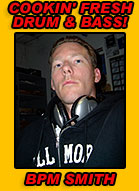

News & Reviews
WORD:
Interview with Emily St. John Mandel, author of 'The Singer's Gun'
Emily St. John Mandel,
whose
debut novel "Last Night in Montreal" (Unbridled Books) in 2009 sparked
critical accolades, has had a busy year. She traveled across
the USA and Canada in suport of her debut while juggling a day job,
life in New York City, and finishing a new novel "The Singer's Gun" --
which tops the IndieNext
list this month. On the eve of her sophomore
launch, Emily shared her thoughts with WORDNBASS.com Editor BPM Smith
about how life's changed over the past year, her unconventional
methodology, and flawed protagonists.
Smith: Congratulations on The
Singer's Gun launch. I've gotta say after Last Night in Montreal this
was among my most anticipated novels of 2010.
 Mandel: Thank you!
That's lovely to hear.
Mandel: Thank you!
That's lovely to hear.
Smith: Montreal got lots
of buzz and praise
from reviewers. How's all this changed your life? I picture travel and
writing like crazy and smashing martini glasses at the Waldorf.
Mandel: Close, but I'm
more of a tea drinker. The success of Last Night in Montreal has
changed my life immensely insofar as I've met some wonderful people
whom I wouldn't otherwise have met, and there have been some wonderful
opportunities, and every so often I get to travel someplace with
someone else paying for my airfare, which is nice.
But publishing a novel is rarely a financially transformative
experience, and in a practical day-to-day sense publication really just
makes your life busier. I still get up every morning and go to my day
job, but the difference is that now once I leave work I have countless
emails to respond to and far more deadlines than I ever had before. I'm
not complaining -- I love most of it -- but it's an inconsistently
glamorous life.
Smith: But seriously, I
understand you finished rewrites on Singer's last fall. How much of the
published version is new from how you originally wrote it and how much
was just polishing?
Mandel: There's little
new material in the published version, but I have a very good editor,
so the plot's much tighter than it was when I sold the book to
Unbridled. I cut a lot of material out and reshaped the ending during
the revision process.
Smith: What's your
writing process like? Can you explain to our readers your methodology?
Mandel: I start with a
vague image, or a sentence, or a premise -- for The Singer's Gun, it
was what if a man left his wife on their honeymoon? -- and just start
writing in the hopes that a story will unfold. I never have any idea
where it's going or how it's going to end.
I wouldn’t necessarily recommend this method of writing novels, because
making the plot coherent requires a lot of backtracking and endless
rewrites, but I think it's the only way I can work. I find that I get
bored with stories if I try to outline them in advance.
Smith: Singer's is your
sophomore novel but you actually wrote it before Montreal didn't you?
Was this a matter of your agent selling Montreal first then Singer's,
or are there other reasons?
Mandel: Actually, no, I
wrote Last Night in Montreal first, but it took nearly two years for
the book to sell -- I had a great agent (Editor's note: the late Emilie Jacobson,
of literary agency Curtis Brown),
but it's a very difficult environment for debut novels by completely
unknown writers, and these things can take some time.
I started The Singer's Gun during that long period while I was waiting
for the first novel to find a publisher, and I finished it a few months
before Last Night in Montreal went to press. It made for a somewhat
insane period last summer when I was simultaneously promoting my first
novel and revising my second on deadline, but I like having books come
out two years in a row.
Smith: In a nut shell,
Singer's is about a guy who made a life based on lies -- he sells fake
passports, falsifies an Ivy League diploma, gets a good job, marries a
woman above him and even cheats on her. Then it implodes. How'd you
come up with this storyline?
Mandel: I know of
someone, a brilliant autodidact, who needed a university degree he
didn't have in order to get the job he wanted. He did some research,
and discovered that someone with his name had graduated with that
degree from a very good university some years earlier -- it happened
that he had a very common name -- so he wrote a letter to the
university, requesting a copy of his diploma. To the best of my
knowledge, he went on to have a successful career. The rest of it was
just what developed as I was writing.
Smith: Unbridled sent me
the ARC and I read most of it flying to and from Amsterdam. I couldn't
put it down on the flight home... there's something about Anton that
made me want to keep finding out what happens to him.
Mandel: Thank you! That’s
nice to hear. I'm glad Anton had that effect on you.
Smith: He does all these
bad things yet I emphathized with him anyhow. Was that the intent? To
create a flawed yet endearing protagonist?
Mandel: Yes, absolutely,
although I don't think I was thinking of it in exactly those terms. I
don’t think that anyone’s completely good or completely evil, and I was
trying to present someone who'd made some mistakes, some of them
catastrophic, but who always tries to do the right thing, is
preoccupied with the question of how to live as honorably as possible,
and does bad things only when he feels he has no choice.
Smith: That's a fine line
to play. Have you encountered readers or reviewers who just think he's
a jerk?
Mandel: I’m trying to
remember... I have a vague recollection of someone finding him too
flawed to be likable a few months back, but I can't remember who it
was. I don't expect everyone to like him. I like him, personally, but
some of the things he does are truly questionable.
Smith: On the other hand
he wants what everyone does: love, success, validation, to make good
despite past failures. Were you consciously thinking readers would get
pulled into Anton's story because these desires are universal?
Mandel: I was conscious
of making him as sympathetic as possible under the circumstances. I'm
sensitive to the people who say they can’t enjoy a book if all the
characters are awful people. I personally don’t need to like the lead
character in a book in order to enjoy the overall story, but I know
that can be an impediment for readers.
Smith: Another unique
thing is the non-linear story telling. Why did you choose this
structure versus a linear one? What are the key advantages to doing it
like this?
Mandel: It's a structure
that I'm strongly drawn to. Two of my favourite novels from the past
year or two are Dan Chaon's "Await Your Reply" and Colum McCann's "Let
The Great World Spin," both of which employ structures that make The
Singer's Gun look linear in comparison. As I see it, there are two
major advantages to having a non-linear structure.
The first is that it's easier to develop narrative tension; you can
order your scenes in terms of how they add to the build-up of tension
in the plot, instead of being constrained by where they took place in
the timeline of the novel. The other advantage is that it makes
exposition much easier: instead of figuring out a way to drop in
a reminiscence of the things Anton’s father used to say to him when
Anton was eleven, for example, I can just present that as a section
that has as much weight as any section that takes place in the present.
Smith: Both of your
novels have a sort of haunting sense of romantic loss. What about this
theme appeals to you?
Mandel: It's interesting
you should say that... I think of Last Night in Montreal as being
suffused with romantic loss, but I hadn’t thought of that in relation
to The Singer's Gun. I’m interested in loss, as a theme, and romantic
loss is something that most of us have experienced and can relate to.
Smith: Tell us about your
prose style. It's quite different... taut, even beautiful in ways.
That's among the hardest things for writers so I'm wondering how did
you develop your prose style?
Mandel: Thank you. I've
never taken a writing class, so my prose style developed solely through
voracious reading and through a lot of practice. I try to read as much
fiction as I can, to see what everyone else is doing.
Smith: You're about to
start a nationwide book tour in support of Singer's but I notice you'd
continued traveling and making regular book event appearances even in
between books. That's sort of different from a lot of authors... do you
like the travel?
Mandel: I do like the
travel. The overlapping event dates were simply a matter of my novels
being published so close together -- The Singer's Gun is coming out
exactly eleven months after Last Night In Montreal. New opportunities
kept coming up, so I think my last event for Last Night in Montreal was
at the end of November, and then I started doing readings and other
events again last month.
Smith: Publishers send me
their authors' road show schedules and I notice a lot of them send
their authors on tour when their novels launch, then things stop.
Seeing you've now had two novels in a fiscal year do you feel like
keeping your face out there has buoyed momentum ahead of Singer's
launch?
Mandel: I think it has,
yes. To be clear, I haven't been touring continuously by any means -- I
just did a book festival in Albany last month, but prior to that I
hadn’t left town since I went to Calgary last October -- but having two
books come out so close together has certainly helped build momentum.
I’m very happy with the way the timing worked out.
Smith: Any parting words
you'd like to send the WORD'N'BASS readers?
Mandel: Thank you for
taking the time to read through this whole interview. If you should
feel so moved to purchase one of my books, I hope you enjoy it, and if
you’d like to come to an event or read more, I have a website at www.emilymandel.com.
Smith: Best of luck
Emily. I hope you have a safe and successful trip.
Mandel: Thanks very much!
To find out more about The Singer's Gun publisher Unbridled Books check
out their website.

Home | Audio | News & Reviews | BPM Smith Blog
Events & Links
| Contact Us
Copyright © 2005 WORD‘N’BASS.com Web Design provided by DiazWebDesign.com